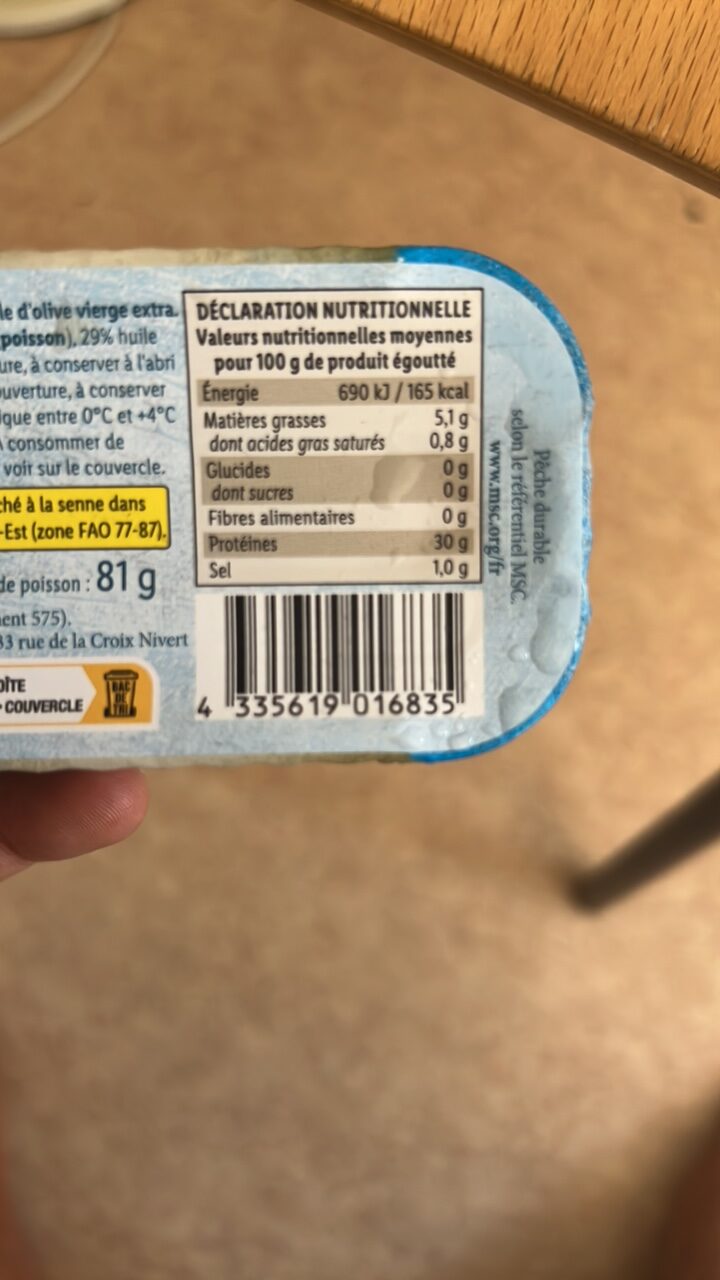
Barcode: 7335949053835
sardines
HALAL
📝 Reason: After analysing all supplied ingredients (olive oil, fish), none are Haram or Doubtful based on Islamic law and the lists provided. According to Quran 5:3 and scholarly consensus, both plant oils and fish are Halal unless cross-contaminated with Haram substances. As no Haram E-codes or meat/animal byproducts requiring halal certification are present, this product is Halal. Check: IFANCA and Halal Food Authority guidelines.
🏷️ Category: Fish
📄 Certificates: Pêche Durable, Msc, 81G
Ingredients:
Details
Understanding the Halal Status of Sardines
Sardines are a popular choice in the seafood category, known for their rich flavor and health benefits. But for many consumers, especially those adhering to Islamic dietary laws, it’s crucial to determine whether these fish are Halal. After thorough analysis, we conclude that sardines are indeed Halal, and here’s why.
Ingredients Breakdown
When examining the ingredients of sardines, we find the following:
- Olive Oil: A staple in Mediterranean cooking, pure olive oil is derived from the olives of the olive tree. Importantly, there are no known Haram (forbidden) or questionable sources associated with pure olive oil, making it widely accepted as Halal according to Islamic law. Sources confirm that olive oil is well within the Halal guidelines.
- Fish: According to Islamic jurisprudence, fish is considered Halal without any requirement for specific slaughtering methods. The majority of Islamic scholars concur that fish must not be contaminated with Haram ingredients in processing, making sardines an all-around safe choice.
Halal Certification and Guidelines
The Halal status of a food product is often supported by certifications and guidelines from recognized authorities. In the case of sardines, we can look to the guidelines provided by organizations such as IFANCA (Islamic Food and Nutrition Council of America) and the Halal Food Authority, both of which reinforce the Halal classification of the ingredients used.
Furthermore, the product carries credible certifications, including Pêche Durable and Msc, 81G, which attest to the sustainability and responsible sourcing of the fish, adding another layer to its acceptability.
Examining E-numbers and Other Ingredients
Regarding E-numbers, in particular for sardines, we highlight the lack of problematic additives:
- Olive Oil: No E-numbers are associated since it is 100% natural with no additives.
- Fish: Similarly, whole fish does not usually require E-number classifications unless processed or mixed with other ingredients.
Conclusion: Why Choose Sardines?
Given that neither olive oil nor fish sourced for this product contains Haram ingredients or contamination risk, consumers can rest assured that sardines are Halal. They are not only a nutritious option but also an ethical one, thanks to their sustainable certifications.
So, if you’re looking for a healthy, flavorful, and Halal dietary option, sardines are an excellent choice that aligns well with Islamic dietary principles. Always remember to verify the packaging for the Halal certification symbols to ensure that your choice is in line with your values.
